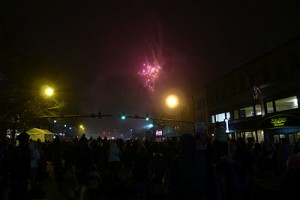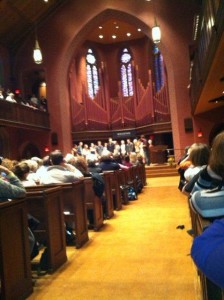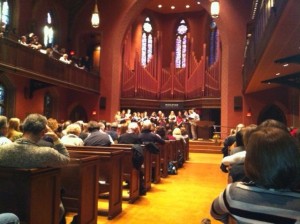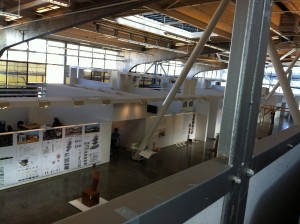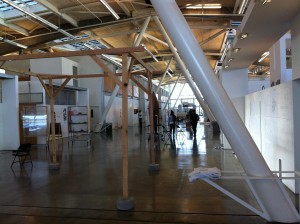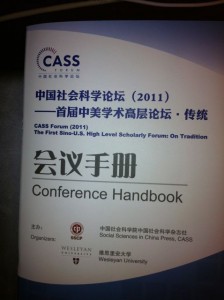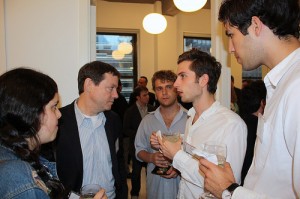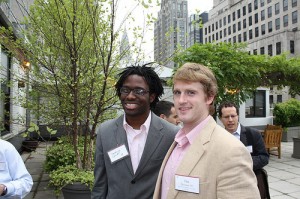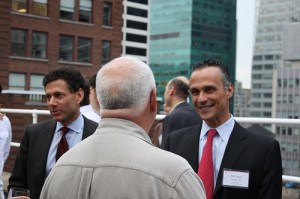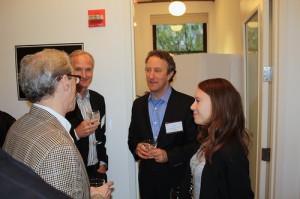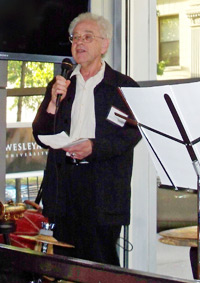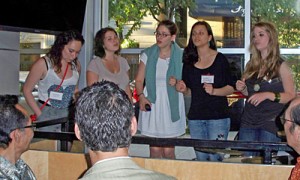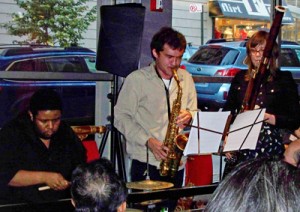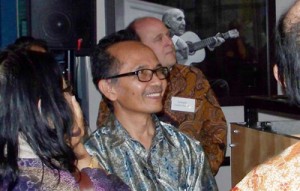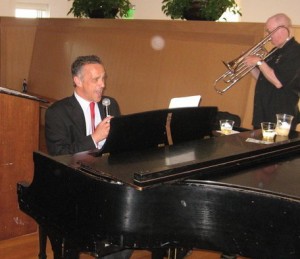Students have asked me about how I feel about the protests going on under the banner of Occupy Wall Street. I know several who have been participating in New York, and others who plan to join in during the fall break just about to begin. Today I posted the following piece on the Huffington Post.
The Occupy Wall Street protests have become an important topic on college campuses. At Wesleyan, some of our students have joined the group in Zuccotti Park in New York, and others have found a variety of ways of expressing their support. Given the mainstream media’s treatment of the movement, it’s easy to mock the lack of clear policy initiatives or to roll one’s eyes at the absence of leaders to express a neat list of demands. But in talking with students and reading some of the statements from the Occupy Wall Street participants, it seems to me that we get a pretty clear picture of their discontent. Like many Americans, they are revolted by how huge infusions of money are corrupting our political system. And, they are aghast at the trajectory of increasing inequality.
There is plenty to protest. There is no question that our politicians now spend enormous amounts of time raising money; we all get the robocalls and the junk mail to prove it. And there is little doubt that elected officials make decisions about particular legislation or policy initiatives while considering how those decisions will affect the willingness of their donors to contribute. At least in this way, money is eating away at our increasingly dysfunctional political system. This is not something that other representative democracies accept as a necessary part of politics. We can try to show how the money flows – that’s been one of the tasks of the Wesleyan Media Project – but we don’t stem the tide.
Meanwhile, economic inequality in the country is accelerating in frightening ways. Here are three representative facts from Nicholas Kristof’s column from last Sunday’s New York Times:
The 400 wealthiest Americans have a greater combined net worth than the bottom 150 million Americans.
The top 1 percent of Americans possess more wealth than the entire bottom 90 percent.
In the Bush expansion from 2002 to 2007, 65 percent of economic gains went to the richest 1 percent.
Add to this that in many parts of the country 1 in 5 children are growing up in poverty, and you begin to have a sense of what is fueling the anger of protestors who feel they have to “occupy” public spaces in their own country – a country they feel is being stolen from them.
How have these trends concerning money and inequality affected life on a university campus? We can see it at either end of the college experience, beginning with access and ending with jobs after graduation. More of our students need financial aid than ever before, and they often need bigger scholarship packages to get through school. We also see the effects of rising inequality in the choices students face when looking for jobs as graduation nears. They hope to have had practical internship experiences to bolster their resumes while undergraduates, and they often worry that the first job they get after college will set them in an income bracket that will frame them for life. They worry that if their education doesn’t seem like job training, then it isn’t education at all.
But in the campus’s classrooms, concert halls, theaters and sports facilities, I see little evidence of the pernicious economic-political trends poisoning the country at large. That’s because the educational enterprise assumes a core egalitarianism linked to freedom and participation; that’s because as teachers we are committed to equality of opportunity for our students and to their freedom to participate as they wish in the educational enterprise. In big lecture halls, students can’t buy the best seats or arrange for extra help sessions with their parents’ checkbooks. In small seminars, there is a face-to-face equality altered only by the talent, ambition and creativity of the discussion participants. Differences often quickly emerge, but these are the differences of performance — variations able to emerge exactly because of the environment of equality and freedom.
As a university president, I do spend a lot of my time fundraising. And I am grateful for the generosity of alumni and foundations who support our financial aid and academic programs. But I am also a professor, and this support has no impact on my teaching role or on the role of my colleagues in the classroom. Now I know that this will strike some readers as impossibly idealistic. After all, some of our students have had great help along the way, while others have had to struggle alone. Some come from wealthy families, others from backgrounds of poverty. There is no doubt that some students are better prepared than others, and that some of that preparation was facilitated by wealth. Still, in the campus culture at schools like Wesleyan, these advantages of birth or luck don’t mean much over time. In order to learn, you have to park your privilege at the classroom door. In order to teach effectively, we try to ensure that our students have an equality of opportunity that doesn’t erase their differences. Furthermore, in those schools that have protected the autonomy of professors, students come to see intellectual freedom modeled by their instructors in ways not dependent on wealth.
When inequality is a charged political problem, as it is right now in the United States, it is because efforts to scale back disparities of wealth are seen as an assault on freedom. Increased state power is often needed to redistribute wealth, and many (and not only those with the money) see this as the growth of tyranny. Of course, increased state power is also used to protect wealth, which creates its own assaults on freedom. Universities and colleges are lucky insofar as they still have an ethos of equality that is linked to freedom in the classroom and around campus. You don’t need strong central power to ensure this. That’s why efforts to control speech with university regulations, are rightly seen (by either the Left or the Right) as anathema to the educational enterprise. But graduation into a world in which inequality is ever more powerful comes as a rude awakening.
The campus as a place of equality and freedom has deep roots in America, at least as far back as Thomas Jefferson. Even with all his prejudices, he favored education at the public expense to prevent the creation of permanent elites based on wealth who would try to turn the government’s powers to their own private advantage. Jefferson believed strongly that given the variability in human capacities and energy there would always be elites — his notion of equality was an equality of access or opportunity not an equality in which everybody wins. But he also believed strongly that without a serious effort to find and cultivate new talent, the nation’s elites would harden into an “unnatural aristocracy,” increasingly privileged, corrupt and inept.
From Jefferson to our own day, we have preserved the belief that education allows for the experience of freedom as one’s capacities are enhanced and brought into use. The author of the Declaration of Independence wanted university students to make these discoveries for themselves, not to be told to study certain fields because their futures had already been decided by their families, teachers, churches or government. Jefferson saw education as a key to preventing permanent, entrenched inequality.
Citizens are feeling they have to “occupy” the public spaces of their own country because they believe their land is being appropriated by entrenched elites. The call to “occupy” is very similar to the Tea Party cry to “take back” our country. Can we find a way to take the experiences of freedom and equality we find in education at its best and translate them to the sphere of politics and society more broadly without at the same time increasing governmental tendencies toward tyranny? Of course, higher education has its own dilemmas of fairness and of elitism, but that does not absolve us of the responsibility to connect in positive ways what we value in research and learning to our contemporary political situation. To make these connections productive, universities must at the very least serve as models: they must continue to strive to be places where young people discover and cultivate their independence and must themselves resist the trends of inequality that are tearing at the fabric of our country.



